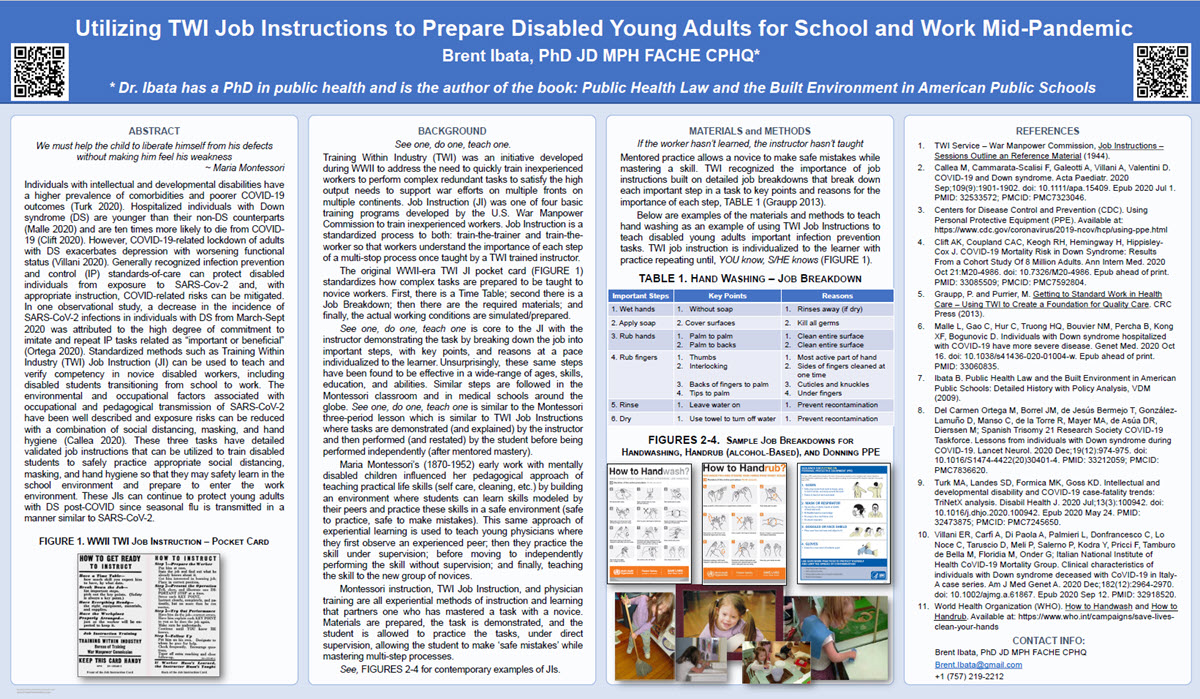Utilizing TWI Job Instructions to Prepare Disabled Young Adults for School and Work Mid-Pandemic
Utilizing TWI Job Instructions to Prepare Disabled Young Adults for School and Work Mid-Pandemic
- Dr. Ibata has a PhD in public health and is the author of the book: Public Health Law and the Built Environment in American Public Schools; author of a 2021 ABA law journal article: Crisis Standards of Care and Employer Duty to Supply PPE During COVID-19; and father of a young adult with Down Syndrome who successfully transitioned from a Montessori classroom to inclusion in multiple American Public Schools and is preparing to safely enter the workforce.
Contact: brent.Ibata@gmail.com
Abstract
Individuals with intellectual and developmental disabilities have a higher prevalence of comorbidities and poorer COVID-19 outcomes (Turk 2020). Hospitalized individuals with Down syndrome are younger than their non- Down syndrome counterparts (Malle 2020) and are ten times more likely to die from COVID-19 (Clift 2020). However, COVID-19-related lockdown of adults with Down syndrome exacerbates depression and worsening functional status (Villani 2020). Generally recognized infection prevention and control (IP) standards-of-care can protect disabled individuals from exposure to SARS-Cov-2 and, with appropriate instruction, COVID-related risks can be mitigated. In one observational study, a decrease in the incidence of SARS-CoV-2 infections in individuals with Down syndrome from March-Sept 2020 was attributed to the high degree of commitment to imitate and repeat IP tasks related as "important or beneficial" (Ortega 2020). Standardized methods such as Training Within Industry (TWI) Job Instruction (JI) can be used to verify competency in novice disabled workers, including disabled students transitioning from school to work. The environmental and occupational factors associated with occupational and pedagogical transmission of SARS-CoV-2 have been well described and exposure risks can be reduced with a combination of social distancing, masking, and hand hygiene (Callea 2020). These three tasks have detailed validated job instructions that can be utilized to train disabled students to safely practice appropriate social distancing, masking, and hand hygiene. This presentation will include a review of the literature on COVID-19 and risks to individuals with Down Syndrome and will share lessons learned from the early days of COVID-19. Together, the literature and lessons-learned inform how to design effective job training for young adults with Down syndrome so that they may safety learn in the school environment and prepare to enter the work environment. These JIs can continue to protect young adults with Down syndrome post-COVID since seasonal flu is transmitted in a manner similar to SARS-CoV-2.
Poster:
Download the PDF here


